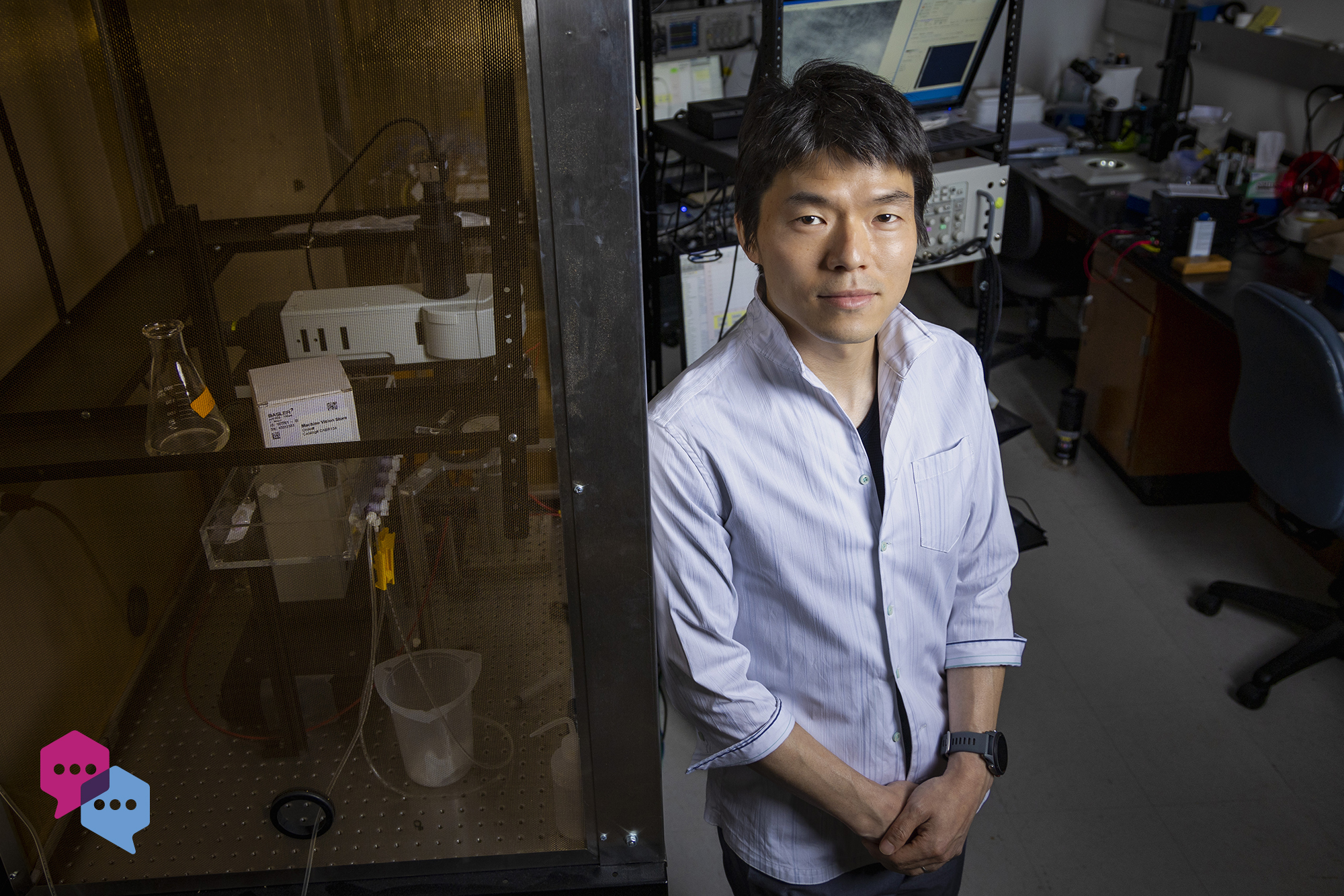Toshihide Hige holds a joint appointment as an assistant professor in the Department of Cell biology & Physiology within the UNC School of Medicine and the Department of Biology within the UNC College of Arts & Science. He uses fruit flies to study learning and memory in the brain.
Q: How did you discover your specific field of study?
A: The poor fruit fly that accurately tracked the coffee aroma and dove into my mug comes to mind when I started thinking of what to do for my postdoctoral research.
During my PhD, I was in the field of synaptic physiology. My research focused on the microscopic process of the chemical communication between neurons. As I gained mechanistic insights into modulation of synapses, I became more interested in its effects on the neural circuits and behavior, which I found difficult to address with the rodent models I was using. I figured the most promising model organism would be a fruit fly, which offers a relatively simple — but not too simple — brain circuitry and the best genetic toolsets to manipulate it.
I learned that some groups had just started applying electrophysiological techniques to the fly brain and so decided to move from Japan to the U.S. to join one of the few labs capable of doing such experiments.
Q: Academics are problem-solvers. Describe a research challenge you’ve faced and how you overcame it.
A: Flies can remember which odor was previously presented with reward or punishment. But even the seemingly simplest learning causes many changes in different parts of the brain, which makes it quite challenging to understand.
My approach to mitigate this problem is to mimic learning by replacing actual rewards and punishments with the activation of a single neuromodulator neuron. In this way, we can “write” a memory in whichever part of the brain we want! By using this method, we previously revealed the key synaptic changes responsible for simple associative learning. More recently, we were also able to identify the circuit that enables a more complicated form of learning.
Q: Describe your research in five words.
A: How do fruit flies learn?
Q: Who or what inspires you? Why?
A: As a synaptic physiologist in my heart, I continue to be inspired by a series of classic papers in that field from the mid-1900s. Those elegant and logical inferences derived from careful observations established the foundation of the field. They make me wonder what those giants would have done differently if they had access to the fancier tools available today. My favorites are the papers and textbook written by Sir Bernard Katz. That’s partly because, I’m proud to say, I’m one of his many scientific “grandchildren.”
Q: If you could pursue any other career, what would it be and why?
A: Astronaut. Or any job that lets me wear a uniform with a big NASA emblem. Isn’t it everyone’s childhood dream?


